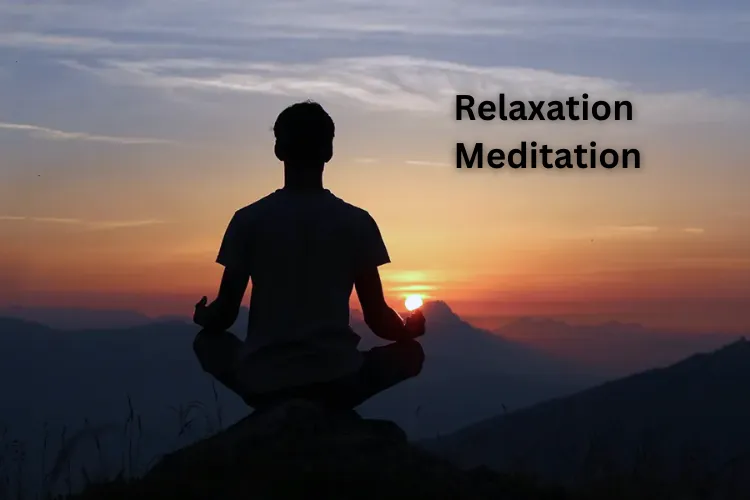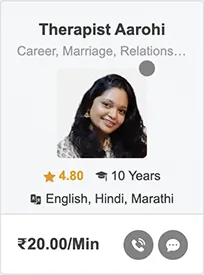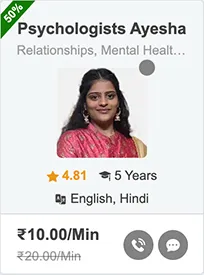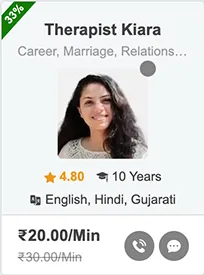रिलैक्सेशन मेडिटेशन आपको तनाव दूर करने में कैसे मदद कर सकता है

तनाव और चिंता दैनिक जीवन के दो अविभाज्य अंग हैं। हालांकि, किसी को उनके बारे में चिंता करने की जरूरत नहीं है और उन्हें रोजमर्रा की जिंदगी में हावी होने दें। जब तनाव और चिंता को कम करने की बात आती है तो ध्यान आपकी बहुत मदद कर सकता है।
रिलैक्सेशन मेडिटेशन शांत और मन की शांति प्राप्त करने का तरीका है। लेकिन यह क्या है, और विश्राम की कुछ बेहतरीन तकनीकें कौन सी हैं? चलो पता करते हैं।
Table of Content
मन को शांत करने के लिए ध्यान
तनाव हमारी लड़ाई या उड़ान प्रतिक्रिया के लिए जिम्मेदार है। प्रतिक्रिया ने हमारे पूर्वजों को लंबे समय तक जीवित रहने में मदद की है। हालाँकि, आधुनिक जीवन में, खतरों को कई प्रकार की चिंता से बदल दिया गया है। चिंता से निपटने के लिए शरीर हार्मोन जारी करता है।
समय के साथ, यह आपके दिमाग और शरीर के साथ समस्या पैदा करता है। मानसिक और शारीरिक दोनों तरह की समस्याएं तनाव और चिंता के कारण होती हैं। कुछ सबसे आम दोषियों में नींद की कमी, अवसाद और यहां तक कि उच्च रक्तचाप भी शामिल हैं।
रिलैक्सेशन मेडिटेशन के साथ, आप तनाव और चिंता कम कर सकते हैं, अपने मन को शांत कर सकते हैं और अपने शरीर को उन तनाव हार्मोन को छोड़ने से रोक सकते हैं जिनके बारे में हमने बात की थी . इससे आपको शांति का अनुभव होगा और आपकी हृदय गति भी कम होगी। यह बस इसे नियमित रूप से करने, आराम से ध्यान करने की आदत बनाने और इसका अधिकतम लाभ उठाने के बारे में है।
विश्राम ध्यान तकनीक
गहरी साँस लेना आराम करने के सबसे आसान तरीकों में से एक है। जब भी आप चिंतित होते हैं, आपने देखा होगा कि आपकी श्वास तेज और उथली होती है। गहरी सांस लेना, या जैसा कि हम इसे कहते हैं, पेट से सांस लेना आपकी मदद करेगा। इसे बेली ब्रीदिंग या डायाफ्रामिक ब्रीदिंग भी कहा जाता है। यह शरीर के तंत्रिका तंत्र को उत्तेजित करेगा। इस प्रकार गहरी सांस लेने से आपकी हृदय गति, मांसपेशियों में तनाव और रक्तचाप को कम करने में मदद मिलेगी।
आपकी सहायता करने के लिए कुछ तकनीकें:
- बैठने के लिए जगह ढूंढें। यह फर्श, योगा मैट या कुर्सी भी हो सकती है। आपके लिए जो भी सुविधाजनक हो, उसे खोजें। अब अपना हाथ अपने दिल पर रखें और दूसरा हाथ अपने पेट पर रखें।
- गहरी सांस अंदर लें; जब आप हवा अंदर लेते हैं तो आपको अपना पेट ऊपर उठता हुआ महसूस होना चाहिए। एक, दो, तीन की गिनती करते हुए अपनी सांस रोकें।
- तीन तक गिनते हुए सांस छोड़ें और महसूस करें कि आपका पेट फूल रहा है।
बेशक, आप अपनी पसंद के हिसाब से तीन की गिनती बदल सकते हैं। आप 5 से 7 की गिनती के लिए अपनी सांस रोक सकते हैं। यहां विचार यह है कि आप अपनी सांस को धीमा करें और अपने पेट को सांस लेने की प्रक्रिया में शामिल करें। जितना अधिक आप इसका अभ्यास करेंगे, यह उतना ही बेहतर होगा। आप इन तकनीकों का अभ्यास तब भी कर सकते हैं जब आप किसी प्रकार की चिंता या तनाव महसूस नहीं कर रहे हों।
अगर आपको अपने मिजाज में किसी तरह की मदद की जरूरत है, हमारे वेलनेस काउंसलर कर सकते हैं आपकी सहायता करें।
विश्राम के लिए निर्देशित ध्यान
अधिकांश विश्राम ध्यान तकनीकों में आपकी श्वास पर ध्यान देना शामिल होगा। कभी-कभी, आपका ध्यान आकर्षित करने के लिए यह एक बाहरी वस्तु हो सकती है। यहां हम एक निर्देशित विश्राम ध्यान तकनीक पर चर्चा कर रहे हैं जो सरल है।
याद रखें, विश्राम और तनाव कम करने के लिए ध्यान के बारे में बात करते समय कई तकनीकें आजमाई जा सकती हैं। यह 10 मिनट का ध्यान है जिसे आप अपनी चिंता को दूर करने में मदद करने के लिए अपनी दिनचर्या का हिस्सा बना सकते हैं।
सांस अन्दर बाहर करें
ध्यान करने के लिए एक जगह खोजें, जो आपके लिए सुविधाजनक हो। शांत, बेहतर। आप तीन गहरी सांसों के साथ शुरुआत कर सकते हैं। कुछ लोग नाक से सांस लेने और मुंह से सांस छोड़ने का भी अभ्यास करते हैं। अपनी श्वास पर ध्यान दें; अपने फेफड़ों के अंदर और बाहर जाने वाली हवा के बारे में सोचें। अपने दिमाग और शरीर से तनाव को दूर करने के बारे में सोचें। तीसरी बार सांस छोड़ते समय अपनी आंखें बंद कर लें।
ज़ोन में
अपनी नसों को व्यवस्थित करें। चाहो तो कुछ पल ले लो। अपनी इंद्रियों से अवगत हों। अपने आस-पास की आवाज़ों, अपने आस-पास की गंधों पर ध्यान दें और अपने शरीर के भार को महसूस करें। यह वह समय है जब आप ध्यान के क्षेत्र में अपनी सभी इंद्रियों को महसूस करते हुए चेक करते हैं।
शरीर को महसूस करो
आप जिस भावना को महसूस कर रहे हैं, उसे जारी रखते हुए, अपने शरीर को सिर से पैर तक स्कैन करें। अपने शरीर के उन हिस्सों को महसूस करें जो तनाव महसूस करते हैं और उन्हें ढीला कर दें। देखें कि आपके शरीर के कौन से हिस्से आराम महसूस करते हैं। बॉडी स्कैन से गुजरने में आपको 20 से 30 सेकंड का समय लग सकता है। मन में उठ रहे विचारों को भी आप महसूस कर सकते हैं। उन्हें खारिज करने की कोशिश मत करो। उन्हें स्वीकार करें और बिना किसी निर्णय के उन्हें नोट करें।
वापस लौटें
अपना ध्यान वापस श्वास पर केंद्रित करें। अपने शरीर में संवेदनाओं को महसूस करें और अपने साँस लेने और छोड़ने के पैटर्न पर ध्यान दें। स्वाभाविक रूप से आपके दिमाग में कुछ विचार आएंगे और कई बार मन भटक जाएगा। अपने आप पर कठोर मत बनो और धीरे-धीरे सांस लेने पर अपना ध्यान वापस लाओ।
शांत महसूस करो
आप वहां कुछ देर बिना किसी विचार के बैठ सकते हैं और अपने दिमाग को मुक्त होने दें। इस समय आपका मन खाली और शांत हो सकता है। यह विचारों से भरा हो सकता है या भ्रमित भी हो सकता है। बस अपने दिमाग को इस पल में रहने दें।
सत्र समापन
अपने विश्राम ध्यान को समाप्त करने की तैयारी करें। धीरे-धीरे अपने परिवेश में वापस आएं और अपने आस-पास के भौतिक वातावरण पर ध्यान दें। ध्यान मुद्रा को महसूस करें, धीरे-धीरे अपनी आंखें खोलें, होश में लौटकर विश्राम ध्यान पूरा करें। देखें कि आपका मन कैसा महसूस करता है।
आप कितना शांत और तनावमुक्त महसूस कर रहे हैं, इसका मानसिक रूप से ध्यान रखें और अगले दिन उसी के लिए वापस आएं। याद रखें, इसका अधिक से अधिक अभ्यास करना ही आपको लंबे समय में मदद करेगा।
रिलैक्सेशन मेडिटेशन के फायदे
जैसा कि नाम से पता चलता है, रिलैक्सेशन मेडिटेशन आपको तनाव दूर करने और चिंता में मदद करता है। यह अवसाद को रोकने में भी एक महत्वपूर्ण कारक हो सकता है। विश्राम ध्यान और अन्य विश्राम तकनीकों के कुछ उल्लेखनीय लाभ यहां दिए गए हैं।
- वे आपकी हृदय गति को धीमा करने में आपकी मदद करते हैं।
- रिलैक्सेशन मेडिटेशन आपके ब्लड प्रेशर को कम करने में आपकी मदद कर सकता है।
- यदि आप तेजी से सांस ले रहे हैं तो यह आपकी सांस लेने की दर को धीमा कर सकता है।
- रिलैक्सेशन तकनीकें पाचन में सुधार करने में मदद कर सकती हैं।
- यह आपके रक्त शर्करा के स्तर को सामान्य करने में आपकी मदद करेगा।
- तनाव हार्मोन के बारे में हमने पहले बात की थी, विश्राम ध्यान आपको उन्हें कम करने में मदद कर सकता है।
- यदि आप किसी प्रकार के पुराने दर्द से पीड़ित हैं या मांसपेशियों में तनाव है, तो विश्राम ध्यान आपको इससे लड़ने में मदद करेगा।
- रचनात्मकता के लिए, यह आपकी एकाग्रता में सुधार करेगा।
- नींद की गुणवत्ता में सुधार से आपका मूड भी बेहतर हो सकता है।
- यह आपको थकान कम करने और इसे कम करने में मदद करेगा।
- कम क्रोध और हताशा भी विश्राम ध्यान के लाभ हैं।
- यह आपके आत्मविश्वास को बढ़ाएगा और तनावपूर्ण स्थितियों के उत्पन्न होने पर उन्हें बेहतर ढंग से प्रबंधित करने में आपकी सहायता करेगा।
अब जब हम जानते हैं कि यह कैसे हमारी मदद करता है, तो आप वही लाभ पाने के लिए रिलैक्सेशन मेडिटेशन के अलावा कुछ अन्य तरीकों को आजमा सकते हैं।
आप ऑनलाइन चिकित्सक से परामर्श भी कर सकते हैं सटीक विवरण के साथ विश्राम ध्यान के लाभों के बारे में जानने के लिए।
तनाव से राहत के लिए अन्य विश्राम ध्यान तकनीकें
रिलैक्सेशन मेडिटेशन के अलावा, कुछ अन्य तकनीकें आपके दिमाग को आराम देने और तनाव को कम करने में आपकी मदद करेंगी।
1. प्रोग्रेसिव मसल रिलैक्सेशन :
प्रोग्रेसिव मसल रिलैक्सेशन की तकनीक सही तरीके से किए जाने पर आपको काफी रिलैक्स महसूस करने में मदद कर सकती है। जब आपकी मांसपेशियाँ तनावग्रस्त नहीं होंगी, तो मन भी काफी तनावमुक्त होगा। कल्पना कीजिए कि आप अपने सुखी स्थान पर हैं और वहां आप हमेशा महसूस करेंगे कि शरीर का वजन हल्का है। आपके शरीर में कोई तनाव नहीं रहेगा। प्रोग्रेसिव मसल रिलैक्सेशन में, हम यही कोशिश करेंगे।
यह अभ्यासों की एक श्रृंखला होगी। जैसे ही आप सांस लेते हैं, आप मांसपेशियों के एक सेट को तनाव देंगे और जैसे ही आप सांस लेंगे उन्हें ढीला कर देंगे। यह हमारे शरीर की खुद को शांत करने की प्रतिक्रिया से संबंधित है, और यह तकनीक अंततः आपके दिमाग को भी आराम करने में मदद करेगी। प्रगतिशील मांसपेशी छूट उन लोगों की भी मदद कर सकती है जिन्हें सोने में परेशानी हो रही है।
क्रम में मांसपेशियां हाथ, कंधे, माथे, आंखों के ऊपर पुल, जबड़े, गर्दन के पीछे, गर्दन के सामने, छाती, पीठ, पेट, जांघों और अंत में पैर हो सकते हैं।
ये कुछ प्राचीन तनाव कम करने में आपकी मदद करने के तरीके हैं। वे आसन और लयबद्ध श्वास का एक संयोजन हैं। ये तकनीकें न केवल आपके दिमाग को आराम देने में मदद करती हैं, बल्कि ये आपको दिन-प्रतिदिन बेहतर ध्यान केंद्रित करने में भी मदद करती हैं।
2. योग
यह ऊपर उल्लिखित तीनों प्रथाओं में से सबसे प्रसिद्ध अभ्यास है। योग स्टूडियो हैं जहां आप शुरुआती कक्षाएं भी ले सकते हैं यदि आप इसके लिए बिल्कुल नए हैं। आपके दिमाग को शांत करने के अलावा, यह आपकी ताकत, संतुलन, लचीलापन और बेहतर सहनशक्ति के साथ आपकी मदद कर सकता है। योग के कई फायदे हैं।
3. ताई ची
ताई ची, ध्यान का थोड़ा कम ज्ञात रूप, सबसे पहले आत्मरक्षा के लिए आविष्कार किया गया था। लेकिन यह मानसिक स्वास्थ्य में सुधार कर सकता है और व्यायाम के एक सौम्य रूप के रूप में काम कर सकता है जिसे कोई भी कर सकता है। यहां ताई ची के कुछ तत्व हैं जो आपको विश्राम में मदद कर सकते हैं।
- गति धीमी और शिथिल होती है, लेकिन आप लगातार गति कर रहे हैं।
- शरीर को हिलाने-डुलाने के लिए खास मुद्राएं अपनाएं।
- ताई ची करते हुए ध्यान लगाने की कोशिश करें, यानी ध्यान भटकाने वाले विचारों को अपने दिमाग से दूर रखने के लिए।
- सांस लेने पर ध्यान दें। यह गहरा और तनावमुक्त होना चाहिए।
4. चीगोंग
चीगोंग ध्यान का एक और चीनी रूप है। ताई ची की तरह ही यह भी आपको शारीरिक और मानसिक स्वास्थ्य दोनों को बढ़ाने में मदद करता है। यह आपको तनाव और चिंता को प्रबंधित करने में मदद कर सकता है और यहां तक कि आपके रक्तचाप को कम करने में भी आपकी मदद कर सकता है।
चीगोंग में चार प्रकार की प्रथाएं शामिल हैं।
- एक गतिशील अभ्यास जिसमें सावधानी से कोरियोग्राफ किए गए आंदोलनों को आपकी जागरूकता को स्थिर करने के लिए आपकी श्वास के साथ समन्वयित किया जाएगा।
- स्थैतिक अभ्यास में आपको योग की तरह ही आसन करना शामिल होगा।
- जैसा कि नाम से पता चलता है, ध्यान का अभ्यास श्वास, आत्म-जागरूकता, मंत्रों और बहुत कुछ पर ध्यान केंद्रित करेगा। यह आंतरिक या बाहरी तत्वों पर ध्यान केंद्रित करके आपके दिमाग को शांत करने में आपकी सहायता करेगा।
- बाहरी अभ्यास में जड़ी-बूटियां और मालिश शामिल हो सकते हैं, और कभी-कभी जीवित जीवों के साथ बातचीत भी कर सकते हैं। ये आपके निरंतर चलने वाले दिमाग को शांत करने के लिए विश्राम और ध्यान की कुछ बेहतरीन तकनीकें हैं।
इन सर्वोत्तम विश्राम ध्यान तकनीकों में से एक चुनें, और आप पहले से ही सही रास्ते पर हैं। एक गतिविधि से अधिक, यह आधुनिक समय की आवश्यकता है। कोई फर्क नहीं पड़ता कि आप क्या चुनते हैं, इसके अनुरूप रहें और हर दिन इसे करने के लिए समय निकालें। हम आपके शांत मन और आराम के समय की कामना करते हैं।
किसी विशेषज्ञ थेरेपिस्ट से बात करें जो आपको कुछ कौशलों से लैस कर सकता है दिन-प्रतिदिन के तनाव से निपटने के लिए।













